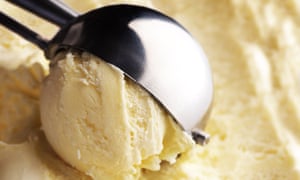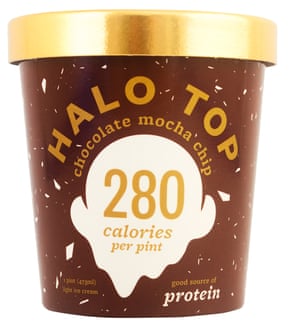
“Everyone you love is gone. There is only ice-cream” is the darkly humorous sign off used in a recent ad for fast-growing American ice-cream brand Halo Top.
The Black Mirror-style commercial, which ran in US cinemas before films including the horror flick It, features an elderly woman being force-fed ice-cream by a robot in some dystopian future.
It was directed by Mike Diva, who has built a YouTube following with his advertising parodies, and who typifies the offbeat digital marketing aimed at millennials that has helped turn Halo Top into serious competition for bestselling brands such as Magnum, Ben & Jerry’s and Häagen-Dazs.
The Los Angeles-based company was founded at the start of the decade by Justin Woolverton, a former lawyer who had a sweet tooth but was worried about sugar. So he bought a $20 ice-cream maker on Amazon and began trying to create healthier alternatives. “It was just something that I was making in my kitchen because I didn’t like sugar,” he told one interviewer about his Eureka moment.

While most ice-creams are a sugar and fat-laden treat, Halo Top bills itself as a “low-calorie, high-protein and low-sugar” alternative to mainstream brands, with flavours such as mochi green tea and rainbow swirls. Its recipe uses sugar substitute Stevia, which means a scoop of its Vanilla Ice contains 60 calories versus 250 in a similar sized dollop of Häagen-Dazs.
Reports in the US media have begun to question whether Halo Top is really as healthy as the marketing makes out, with some dieticians raising concerns about the use of artificial sweeteners.
Halo Top is now stocked in supermarkets across America, with the company shifting nearly $50m (£38m) worth of ice-cream in the US last year. Its sales accelerated in 2016 after GQ writer Shane Snow lived on Halo Top ice-cream for 10 days and the resulting article went viral.
The brand’s rise has been propelled by social media: it has 590,000 followers on Instagram and more than 700,000 on Facebook.
The social media buzz helped Halo Top chalk up another milestone in the summer when industry data showed its pint pots were outselling Unilever’s Ben & Jerry’s and Nestlé’s Häagen-Dazs in US grocery stores for the first time. Halo Top’s parent company, LA-based Eden Creamery, is seizing the day with one recent report suggesting it is exploring a sale that could value the company at up to $2bn.
No comments:
Post a Comment